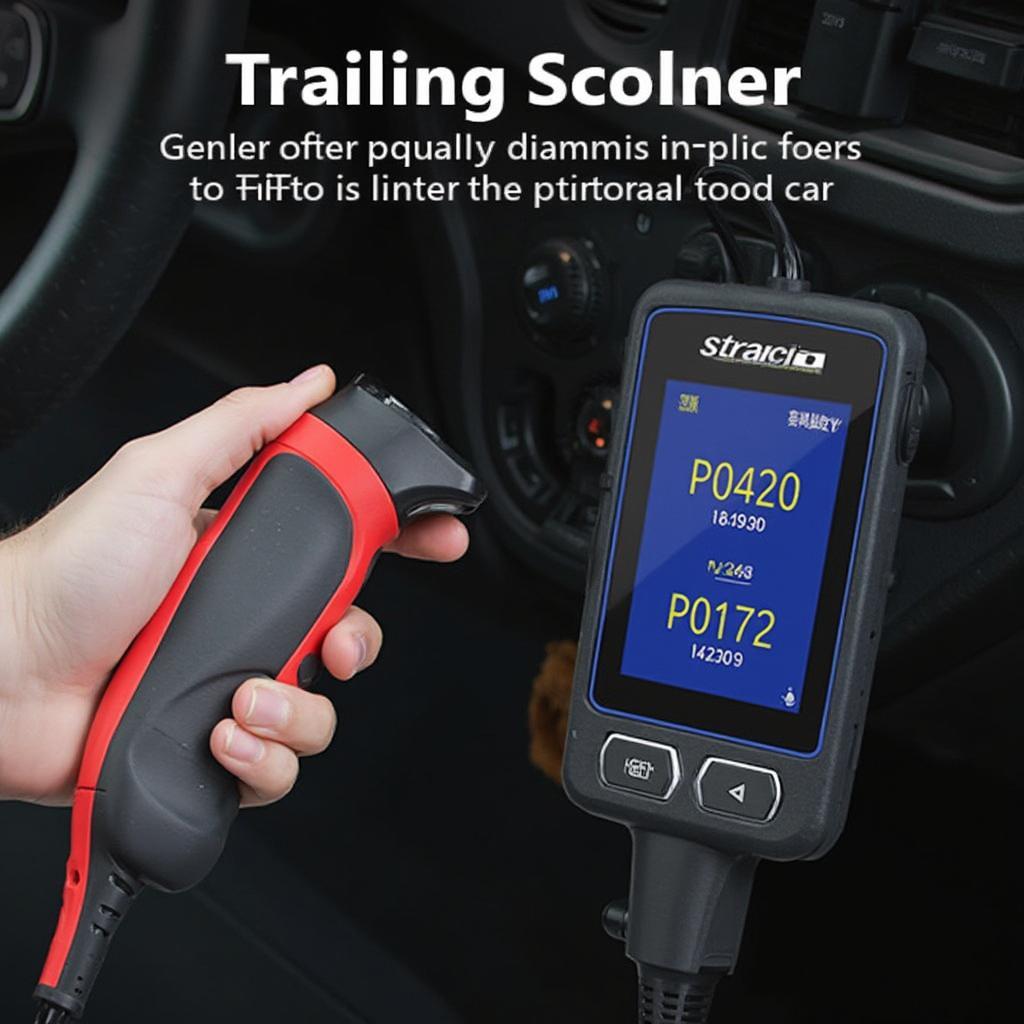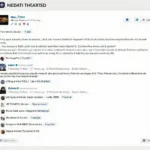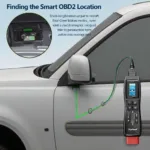OBD2 codes P0420 and P0172 are two common trouble codes that can cause headaches for car owners. Understanding what these codes mean and how to address them can save you time and money. This comprehensive guide dives deep into the causes, symptoms, and solutions for both P0420 and P0172, empowering you to take control of your car’s health. You can check out our obd2 scanner work with emissions article for more information on emissions related codes.
Decoding P0420: Catalyst System Efficiency Below Threshold (Bank 1)
P0420 specifically indicates a problem with your vehicle’s catalytic converter. The catalytic converter is a crucial component of your exhaust system, responsible for converting harmful pollutants into less harmful substances before they exit the tailpipe. “Bank 1” refers to the side of the engine where cylinder number one is located. This code triggers when the oxygen sensors downstream and upstream of the catalytic converter report similar readings, indicating the converter isn’t working efficiently.
Common Causes of P0420
- Failing Catalytic Converter: This is the most common culprit. Over time, the internal honeycomb structure of the converter can become clogged or damaged.
- Exhaust Leaks: Leaks before the catalytic converter can introduce excess oxygen, disrupting the sensor readings.
- Faulty Oxygen Sensors: A malfunctioning oxygen sensor can send incorrect signals to the engine control module (ECM), triggering the P0420 code even if the converter is functioning correctly.
- Engine Misfires: Unburnt fuel from engine misfires can overload the catalytic converter, reducing its efficiency.
Symptoms of P0420
- Check Engine Light: The most obvious symptom is the illuminated check engine light on your dashboard.
- Decreased Fuel Economy: A failing catalytic converter can negatively impact your car’s fuel efficiency.
- Loss of Power: In severe cases, a clogged converter can restrict exhaust flow, leading to a noticeable loss of power.
- Rotten Egg Smell: A sulfurous odor from the exhaust can indicate a failing converter.
Understanding P0172: System Too Rich (Bank 1)
P0172 signifies that the air-fuel mixture in your engine is too rich, meaning there’s too much fuel compared to air. Just like with P0420, “Bank 1” refers to the side of the engine with cylinder one. A rich air-fuel mixture can lead to several problems, including reduced fuel economy and increased emissions.
Common Causes of P0172
- Faulty Oxygen Sensor: A malfunctioning oxygen sensor can provide incorrect readings to the ECM, leading to excessive fuel injection.
- Faulty Mass Airflow (MAF) Sensor: The MAF sensor measures the amount of air entering the engine. A faulty MAF sensor can underestimate the airflow, causing the ECM to inject too much fuel.
- Leaking Fuel Injectors: Leaking injectors can introduce excess fuel into the cylinders.
- Faulty Fuel Pressure Regulator: A faulty regulator can cause excessively high fuel pressure, resulting in a rich mixture.
- Vacuum Leaks: Leaks in the vacuum system can disrupt the air-fuel mixture.
Symptoms of P0172
- Check Engine Light: The check engine light will illuminate.
- Rough Idle: The engine may run rough or stumble at idle.
- Decreased Fuel Economy: A rich mixture burns more fuel than necessary.
- Black Smoke from Exhaust: Excess fuel can cause black smoke to exit the tailpipe.
- Smell of Gasoline: A strong gasoline odor may be noticeable.
For a comprehensive list of OBD2 codes, you can visit our obd2 fehlercode liste.
What to do if you encounter P0420 or P0172
Both P0420 and P0172 require prompt attention. While a check engine light can be unsettling, it’s important not to panic. Here’s a general approach to diagnosing and fixing these codes:
-
Read the Codes: Use an OBD2 scanner like those reviewed on Scantron readss what obd2 codes to retrieve the specific trouble codes stored in your vehicle’s ECM. This will confirm whether you’re dealing with P0420, P0172, or other codes.
-
Research the Codes: Once you have the codes, research their meaning and potential causes. This guide provides a good starting point, but further research specific to your vehicle’s make and model can be beneficial.
-
Inspect for Obvious Issues: Check for any visible signs of damage or leaks in the exhaust system, vacuum hoses, or around the engine.
-
Check Oxygen Sensors: Oxygen sensors are a common culprit for both P0420 and P0172. Testing the sensors with a multimeter can help determine if they are functioning correctly.
-
Check MAF Sensor: Inspect the MAF sensor for dirt or damage. Cleaning or replacing the sensor can often resolve P0172.
-
Consult a Professional: If you’re unable to diagnose or fix the problem yourself, consult a qualified mechanic. They have the expertise and tools to pinpoint the issue and perform the necessary repairs. Find out how copartes obd2 can assist you.
 Using an OBD2 Scanner to Diagnose P0420 and P0172
Using an OBD2 Scanner to Diagnose P0420 and P0172
Conclusion: Taking Control of Your Car’s Health with OBD2 Knowledge
Understanding OBD2 codes like P0420 and P0172 is crucial for maintaining your car’s health and preventing costly repairs. By using an OBD2 scanner and following a systematic diagnostic approach, you can effectively address these issues and keep your car running smoothly. Armed with this knowledge, you can confidently tackle these common trouble codes and avoid unnecessary expenses.
FAQ
-
Can I drive with a P0420 code? Yes, but it can affect fuel efficiency and eventually lead to further damage.
-
Will a P0172 code damage my engine? Prolonged driving with a rich mixture can damage the catalytic converter and spark plugs.
-
Can I fix these codes myself? Depending on your mechanical skills and the specific cause, you may be able to fix these codes yourself.
-
How much does it cost to replace a catalytic converter? The cost varies depending on the vehicle, but it can be a significant expense.
-
How often should I check my OBD2 codes? Regularly checking your OBD2 codes, especially if you notice any unusual symptoms, is a good preventative maintenance practice.
-
Can I clear the codes and see if they come back? Clearing the codes is a temporary fix. The codes will return if the underlying problem is not addressed.
-
What other codes are related to P0420 and P0172? P0430 (Catalyst System Efficiency Below Threshold Bank 2) is related to P0420. P0171 (System Too Lean Bank 1) and P0174 (System Too Lean Bank 2) are related to P0172.
Need help with your OBD2 codes? Contact us via WhatsApp: +1(641)206-8880, Email: cardiagtechworkshop@gmail.com or visit us at 789 Elm Street, San Francisco, CA 94102, USA. Our customer service team is available 24/7 to assist you. You might also find our articles on eonon obd2 helpful.

